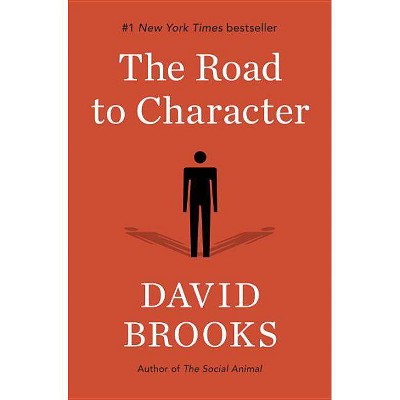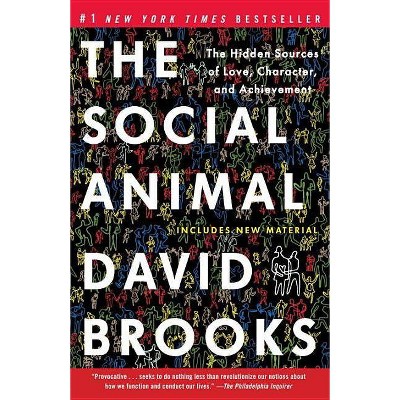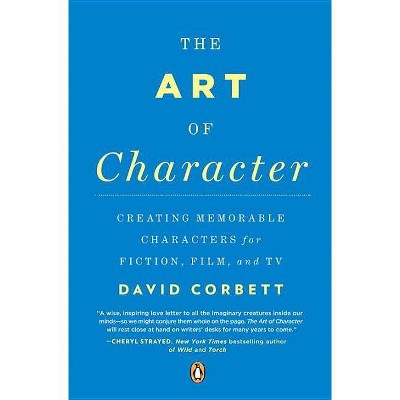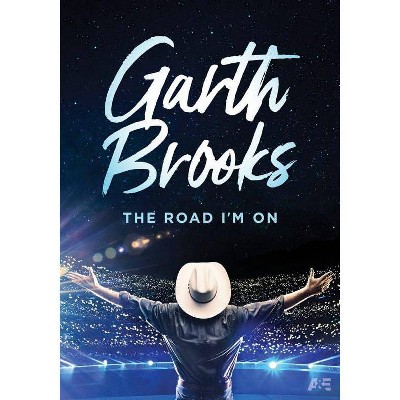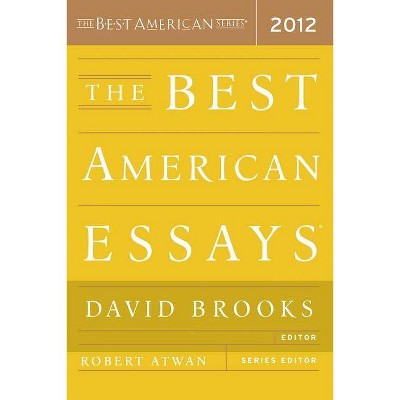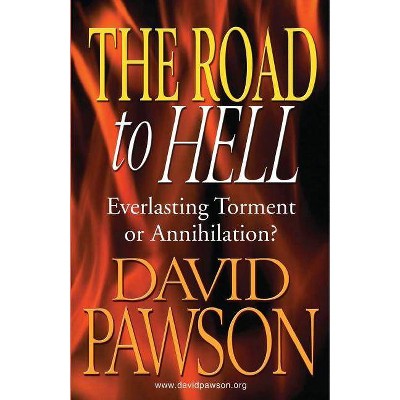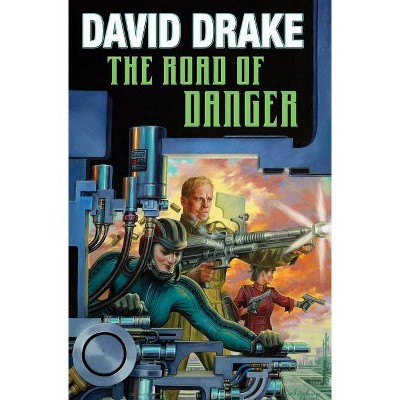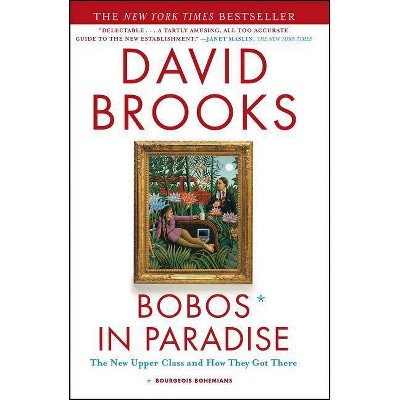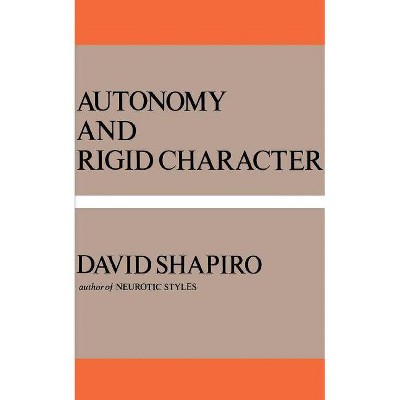The Road to Character - by David Brooks (Paperback)
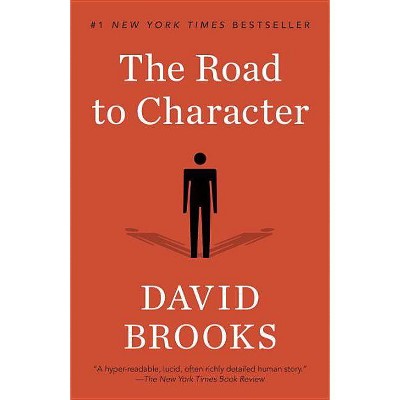
Similar Products
Products of same category from the store
AllProduct info
<p/><br></br><p><b> About the Book </b></p></br></br>"Responding to what he calls the culture of the Big Me, which emphasizes external success, Brooks challenges us, and himself, to rebalance the scales between our "râesumâe virtues"--Achieving wealth, fame, and status -- and our "eulogy virtues," those that exist at the core of our being: kindness, bravery, honesty, or faithfulness, focusing on what kind of relationships we have formed. Looking to some of the world's greatest thinkers and inspiring leaders, Brooks explores how, through internal struggle and a sense of their own limitations, they have built a strong inner character. "--Provided by publisher.<p/><br></br><p><b> Book Synopsis </b></p></br></br><b>#1 <i>NEW YORK TIMES</i> BESTSELLER - David Brooks challenges us to rebalance the scales between the focus on external success--"résumé virtues"--and our core principles.</b><br> <b> </b><br> <b>NAMED ONE OF THE BEST BOOKS OF THE YEAR BY <i>THE ECONOMIST</i></b><br> <b><i> </i></b><br> With the wisdom, humor, curiosity, and sharp insights that have brought millions of readers to his <i>New York Times</i> column and his previous bestsellers, David Brooks has consistently illuminated our daily lives in surprising and original ways. In <i>The Social Animal, </i> he explored the neuroscience of human connection and how we can flourish together. Now, in <i>The Road to Character, </i>he focuses on the deeper values that should inform our lives. <p/> Looking to some of the world's greatest thinkers and inspiring leaders, Brooks explores how, through internal struggle and a sense of their own limitations, they have built a strong inner character. Labor activist Frances Perkins understood the need to suppress parts of herself so that she could be an instrument in a larger cause. Dwight Eisenhower organized his life not around impulsive self-expression but considered self-restraint. Dorothy Day, a devout Catholic convert and champion of the poor, learned as a young woman the vocabulary of simplicity and surrender. Civil rights pioneers A. Philip Randolph and Bayard Rustin learned reticence and the logic of self-discipline, the need to distrust oneself even while waging a noble crusade. <p/> Blending psychology, politics, spirituality, and confessional, <i>The Road to Character</i> provides an opportunity for us to rethink our priorities, and strive to build rich inner lives marked by humility and moral depth. <p/> "Joy," David Brooks writes, "is a byproduct experienced by people who are aiming for something else. But it comes." <p/><b>Praise for <i>The Road to Character</i></b> <p/>"A hyper-readable, lucid, often richly detailed human story."<b>--<i>The New York Times Book Review</i></b> <p/> "This profound and eloquent book is written with moral urgency and philosophical elegance."<b>--Andrew Solomon, author of <i>Far from the Tree</i> and <i>The Noonday Demon</i></b> <p/> "A powerful, haunting book that works its way beneath your skin."<b><i>--The Guardian<br></i></b><br>"Original and eye-opening . . . Brooks is a normative version of Malcolm Gladwell, culling from a wide array of scientists and thinkers to weave an idea bigger than the sum of its parts."<b>--<i>USA Today</i></b><p/><br></br><p><b> Review Quotes </b></p></br></br><br>"David Brooks's gift--as he might put it in his swift, engaging way--is for making obscure but potent social studies research accessible and even startling. . . . [<i>The Road to Character</i> is] a hyper-readable, lucid, often richly detailed human story. . . . In the age of the selfie, Brooks wishes to exhort us back to a semiclassical sense of self-restraint, self-erasure, and self-suspicion."<b>--Pico Iyer, <i>The New York Times Book Review</i></b> <p/>"David Brooks--the <i>New York Times</i> columnist and PBS commentator whose measured calm gives punditry a good name--offers the building blocks of a meaningful life."<b>--<i>Washingtonian</i></b> <p/> "This profound and eloquent book is written with moral urgency and philosophical elegance."<b>--Andrew Solomon, author of <i>Far from the Tree</i> and <i>The Noonday Demon</i></b> <p/>"[Brooks] emerges as a countercultural leader. . . . The literary achievement of <i>The Road to Character</i> is inseparable from the virtues of its author. As the reader, you not only want to know<i> about</i> Frances Perkins or Saint Augustine. You also want to know what Brooks makes of Frances Perkins or Saint Augustine. The voice of the book is calm, fair and humane. The highlight of the material is the quality of the author's moral and spiritual judgments."<b>--Michael Gerson, <i>The Washington Post</i></b> <p/>"A powerful, haunting book that works its way beneath your skin."<b><i>--The Guardian </i>(U.K.)</b> <p/> "This learned and engaging book brims with pleasures."<b>--<i>Newsday</i></b> <p/>"Original and eye-opening . . . At his best, Brooks is a normative version of Malcolm Gladwell, culling from a wide array of scientists and thinkers to weave an idea bigger than the sum of its parts."<b>--<i>USA Today</i></b> <p/>"David Brooks breaks the columnist's fourth wall. . . . There is something affecting in the diligence with which Brooks seeks a cure for his self-diagnosed shallowness by plumbing the depths of others. . . . Brooks's instinct that there is wisdom to be found in literature that cannot be found in the pages of the latest social science journals is well-advised, and the possibility that his book may bring the likes of Eliot or Samuel Johnson--another literary figure about whom he writes with engaging sympathy--to a wider general readership is a heartening thought."<b>--Rebecca Mead, <i>The New Yorker</i></b> <p/> "If you want to be reassured that you are special, you will hate this book. But if you like thoughtful polemics, it is worth logging off Facebook to read it."<b>--<i>The Economist</i></b> <p/>"Brooks uses the powerful stories of people such as Augustine, George Eliot and Dwight Eisenhower to inspire."<b>--<i>The Times </i>(U.K.)</b> <p/>"Elegant and lucid . . . a pitch-perfect clarion call, issued not with preachy hubris but from a deep place of humility, for awakening to the greatest rewards of living . . . <i>The Road to Character</i> is an essential read in its entirety--Anne Lamott with a harder edge of moral philosophy, Seneca with a softer edge of spiritual sensitivity, E. F. Schumacher for perplexed moderns."<b>--Maria Popova, <i>Brain Pickings</i></b><br><p/><br></br><p><b> About the Author </b></p></br></br><b>David Brooks </b>is one of the nation's leading writers and commentators. He is an op-ed columnist for <i>The New York Times</i> and appears regularly on<i> PBS NewsHour </i>and <i>Meet the Press</i>. He is the bestselling author of <i>The Social Animal: The Hidden Sources of Love, Character, and Achievement; Bobos in Paradise: The New Upper Class and How They Got There; </i>and <i>On Paradise Drive: How We Live Now (And Always Have) in the Future Tense</i>.
Price History
Cheapest price in the interval: 10.99 on November 6, 2021
Most expensive price in the interval: 11.69 on March 10, 2021
Price Archive shows prices from various stores, lets you see history and find the cheapest. There is no actual sale on the website. For all support, inquiry and suggestion messages communication@pricearchive.us
